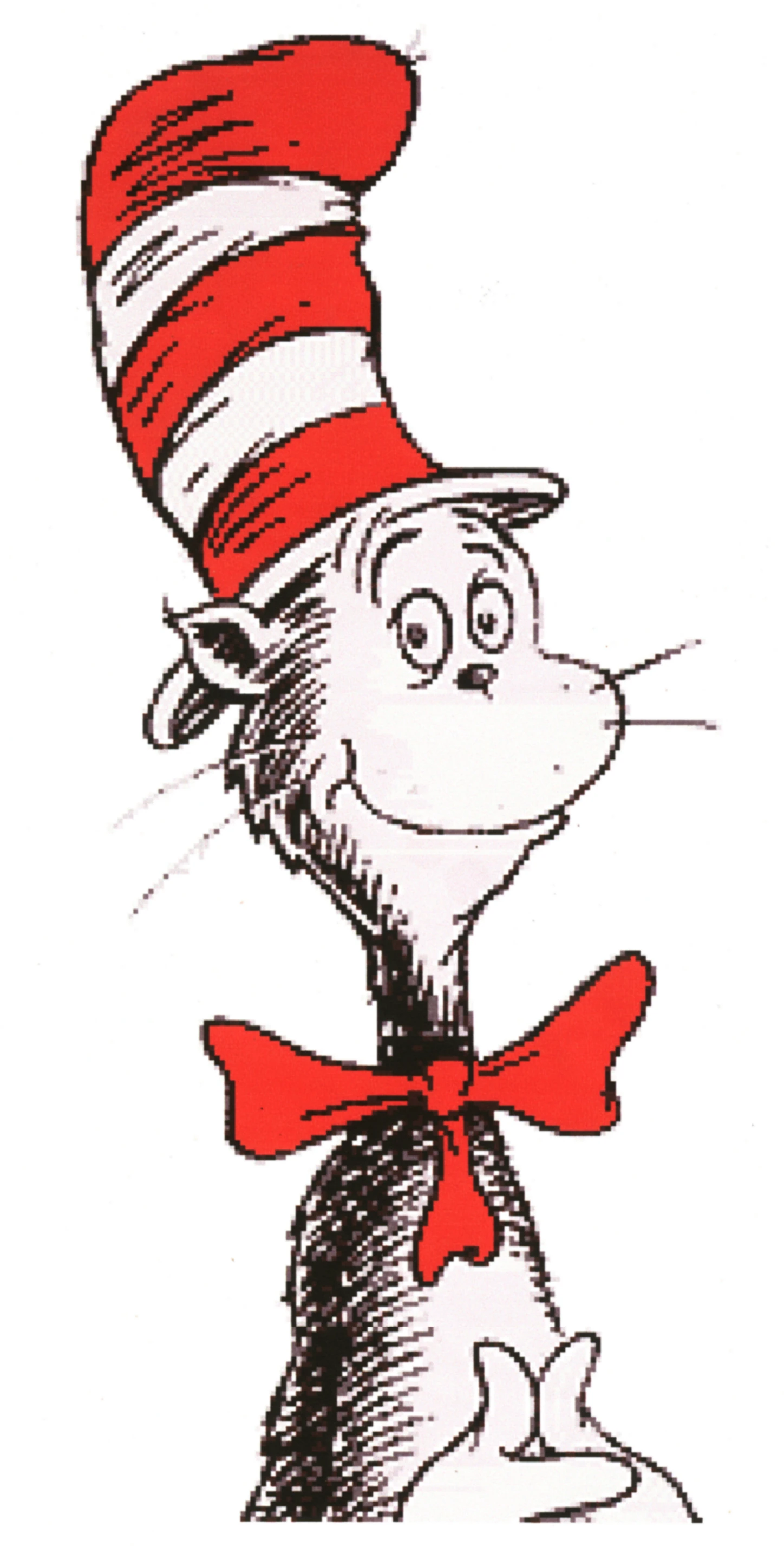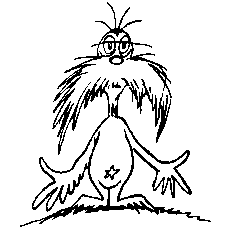
Today is Dr. Seuss Day. Theodor Geisel was born on this day in 1904 and went on to have a decades-long career in children's books. It's hard to imagine a world without him. I grew up reading and loving his books, and still enjoy them to this day.

He has a complex job history, though. Like most people, he found himself doing things to support himself that he may not have particularly enjoyed or 100% supported. He did commercial work for may large corporations and in WWII did work for the war department. Some of that work doesn't jive with his later work which focused a lot on themes of inclusion, environmentalism, and anti-racism. I don't fault people for where they started in life, or even the evolution that takes them down paths that they may not have chosen if they'd been given an actual choice or at least better options. I'm more interested in where a person ends up, what happens to that person's character, and how one adjusts and adapts as life moves on and changes.
This is my favorite Dr. Seuss book - Green Eggs and Ham. Although the obvious theme is to be bold and try new things, overcoming personal biases and stretching limits, I also think there's a not-so-subtle sub-context of anti-racism. I remember watching this clip from when I was in high school:
Green Eggs and Ham from michael dickins on Vimeo.
This is my favorite Dr. Seuss book - Green Eggs and Ham. Although the obvious theme is to be bold and try new things, overcoming personal biases and stretching limits, I also think there's a not-so-subtle sub-context of anti-racism. I remember watching this clip from when I was in high school:
Green Eggs and Ham from michael dickins on Vimeo.
It's a lovely reading, and Reverend Jackson lends a kind of depth and credibility to the text that is rich and powerful. Honestly, it not only changed my understanding of Dr. Seuss, but my understanding of racism and love and brotherhood.
These are pretty heavy topics, especially for a child. But isn't exactly in childhood where these kinds of ideas take root? Isn't the plasticity of children's minds that makes this message so vital, so essential? Isn't it the children who represent the real change that's possible in the world?
I think the answer to that is a resounding YES!
But how do you approach this in a way that children can understand? How do you make a book that is about racism silly enough and subtle enough that it can be entertaining while still carrying across the serious message? How do you speak of important and reverent things in a manner that engages children?
That may be the real genius of Dr. Seuss.
“You have brains in your head. You have feet in your shoes. You can steer yourself any direction you choose. You're on your own. And you know what you know. And YOU are the one who'll decide where to go...”
― Dr. Seuss, Oh, The Places You'll Go!


Comments